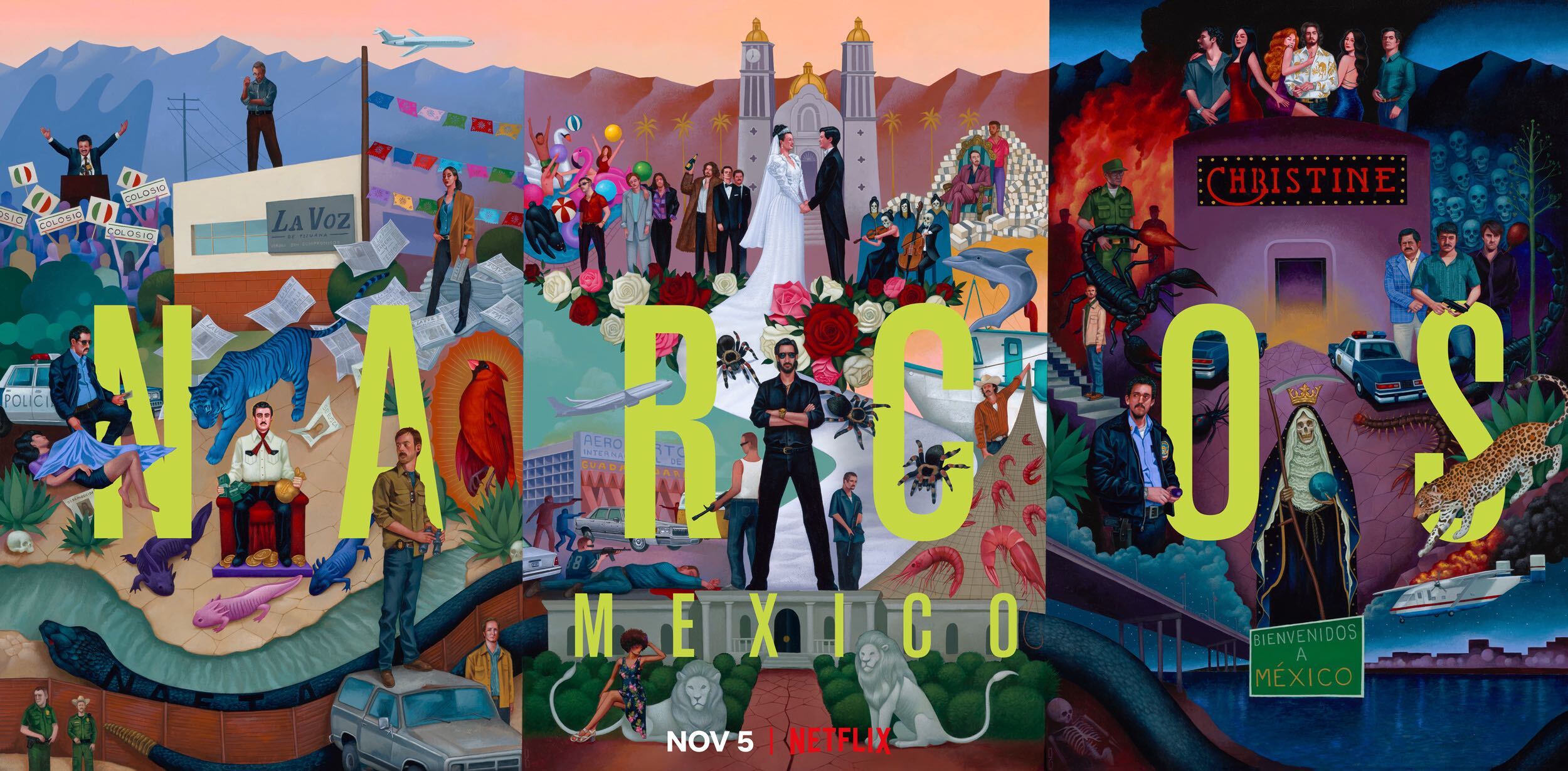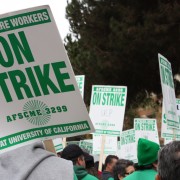La Violenta Salida de Evo
Las guerras de independencia concluyeron hace más de 200 años. La meta? Que los sujetos colonizados se liberaran del Imperio español y su legado de colonialismo que dependía de divisiones por clase y color de piel.
Ahora, dos siglos después, es claro que la meta no fue lograda.
El golpe de estado en Bolivia es un testamento a la historia latinoamericana tras un legado de colonialismo que aún persiste y que se exacerba bastante con la llegada del imperialismo norteamericano a mediados del siglo XIX.
Evo Morales, el presidente y mandatario de Bolivia desde 2006, fue la víctima más reciente por un golpe de estado solamente cuatro años tras el golpe en Brasil que resultó en la condenación de Dilma Rousseff.
Uno sólo tiene que darse cuenta de las palabras infamantes y racistas de la presidenta autoproclamada Jeanine Áñez que detallan y subrayan una fidelidad al patrimonio de la Iglesia católica: “Dios ha permitido que la Biblia vuelva a entrar al Palacio. Que él nos bendiga.” ¡Qué locura, usar la religión como propaganda para destituir a un presidente que no sea cristiano! Pero hay algo muy importante que recordar: los 400 años de colonialismo bajo España, además de casi 100 años bajo imperialismo y vigilancia estadounidense, han creado un fuerte ambiente de ideologías imperialistas, como el fascismo y el racismo, que se legitiman con el catolicismo europeo. Toma por ejemplo este artículo sobre la casa “lujosa” de Evo Morales en Bolivia. Una cama, un armario, un sofá, y cortinas para las ventanas. La retórica racista de la derecha sobre las pertenencias materiales de Evo es evidencia que para ellos, los indígenas tienen que vivir como vivieron hace cinco siglos: sin casa, sin ropa, sin fuego, sin luz, y sin tecnología—nada de “lujo.”
¿Pero por qué durante la presidencia de Evo Morales no se eliminó esta retórica racista, ni se sanaron heridas causadas por el colonialismo? En vez de culpar a Evo por esto, es mejor preguntar más a fondo por qué no se realizaron estas metas. Hay que comparar el tiempo de Evo como presidente de Bolivia y el tiempo en lo cual Bolivia vivió bajo colonización e imperialismo. ¡Catorce años no pueden ni empezar a erradicar mentalidades coloniales ni el legado del imperialismo norteamericano! En el caso de Cuba, por ejemplo, prejuicios coloniales aún existen 60 años después de la revolución a causa de casi 500 años bajo el mando de España y los Estados Unidos, o por otros motivos, como la disolución de la Unión Soviética en 1992.
Además, Evo no es más que una persona; tal vez su partido tuvo la mayoría parlamentaria en el Congreso boliviano, pero para prosperar mientras los Estados Unidos y sus lacayos lo mantuvieron bajo vigilancia, Evo tomó bastante precauciones en sus acciones como líder del país.
Pero hay algo más que me alarma, y también debe de alarmar al público. La llegada de la tecnología y redes sociales han intensificado la lucha imperialista realizada por los Estados Unidos. Un análisis extensivo sobre las cuentas creadas en Twitter que apoyan el golpe de estado encontró que aproximadamente 68 mil de cuentas eran falsas. ¿Qué significa esto? Que los poderes detrás del golpe están dispuestos a esconder que la situación en Bolivia es un violento golpe de estado, y esta meta se realiza a través de cuentas falsas que escriben—en muy buen inglés que casi se parece fabricado—que Evo no se fue a causa de un golpe de estado, sino que fue depuesto por un movimiento democrático.
Lo más importante es que en Latinoamérica, el legado del colonialismo, tal como el imperialismo, aún persiste. Pero esta lucha se ubica en nuevas fronteras, y el advento de las redes sociales sólo desarrollará más esta lucha cibernética donde cualquier narrativa—falsa o verdadera—puede ser circulada entre millones de personas. El contragolpe también debe de ser realizado por estas mismas fronteras si el imperialismo será confrontado por el pueblo boliviano.
English Translation:
The Wars for Independence in Latin America were more than 200 years ago. The goal? For the colonized subjects to win their liberation from the Spanish Empire and its legacy of colonialism, that consisted of a social divide of both race and class.
Now, two centuries later, it’s obvious that goal was never achieved.
The coup in Bolivia is a testament to Latin American history, one beyond a legacy of colonialism that still has not been eradicated in society, and only exacerbates with the arrival of US imperialism to the region of Latin America in the 19th century.
Evo Morales, the president and leader of Bolivia since 2006 is the most recent victim of a coup, only 4 years after the coup in Brazil, which saw Dilma Rousseff condemned.
One only needs to learn about the inflammatory and racist words of the self-proclaimed president Jeanine Áñez, which both detail and underline a sentiment very loyal in nature to the patrimony of the Catholic Church: “God has allowed for the Bible to come back to [the] Palace. May He bless us.” What madness, to use religion as propaganda to remove a president who isn’t Christian! But one must remember something very important: the 400 years of colonialism by Spain, mixed in with the almost 100 years of U.S imperialism and vigilance, has created a strong and powerful environment of imperialist ideologies, such as fascism and racism, that mixes well with European Catholicism. Take, for example, this article about the supposed “luxurious” house of Evo Morales in Bolivia. A bed, a wardrobe, a sofa, and curtains for the windows. The racist rhetoric that comes from the right about any material good when it belongs to someone like Evo is evidence that, for them, indigenous peoples must live how they lived five centuries ago: without a home, without clothes, without a fire, without light and electricity, without technology, nothing “luxurious” like those things.
But why wasn’t this rhetoric nor the damages and trauma caused by colonialism eliminated during the years of Evo Morales? The 14 years of his leadership did not change much in terms of social classes. But instead of blaming him for this, it’s better to ask: why? One should compare the time that Evo spent as president of Bolivia to the years that Bolivia was under colonialism and imperialism. Fourteen years cannot even begin to eradicate the colonized mindsets nor the decay caused by U.S imperialism! Look at Cuba: 60 years after the Revolution and there still exist colonial-era prejudices in society, whether it be for the nearly 500 years under the control of both Spain and the United States, or for another motive, such as the fall of the USSR in the 1990s.
Besides, Evo is only one person; maybe he has the majority of his party in congress, but to survive under the constant surveillance of both the United States and its lackeys, one must be very cautious of the actions they take as leader of some country.
But there is also something else that frightens me, and should also frighten various people. The advent of both technology and social media has intensified the imperialist fight done by the United States. A profound analysis on recently made Twitter accounts that support the coup reveal that the accounts are fake, approximately 68 thousand of them. What does this mean? It means that the powers that lead this coup are prepared to erase the narrative that whatever happens in Bolivia is not classified as a coup, and they execute this through the fake accounts that write– in such a perfect form of English that it sounds nearly manufactured– that Evo was not removed because of a coup.
The most important thing is that in Latin America, the legacy of colonialism, much like its bedfellow, imperialism, persists. But this new fight is located in new fronts, and the phenomenon of social media will only develop this cybernetic fight even more, where any narrative– whether false or true– can be circulated between millions of people. The counterattack should also be done through these same fronts and methods if this imperialism will be confronted by the people of Bolivia.










Leave a Reply
Want to join the discussion?Feel free to contribute!